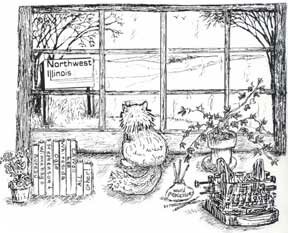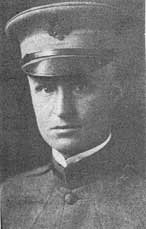Discover rewarding casino experiences. 
Click on the Flag for More Information |
"Parties following dragged them from the wreckage. Mr. Elmer retained consciousness although badly hurt, and directed the removal of his wife to the hospital in Tallahassee. Mrs. Elmer, wearied in the long drive, had fallen asleep, then rendered unconscious by the shock of the accident, did not regain her senses until the next morning. Her injuries were not serious and consisted mainly of a cut above the left eye, limbs cut, and many bruises and contusions. Mr. Elmer's injuries were fatal and he knew it. His hip, pelvis and one leg were broken and the bladder punctured. He died between twelve and one o'clock Tuesday afternoon, conscious to the end. "George Naile, driver of the school bus, had two companions with him, all intoxicated. Naile is held in jail. Both cars were badly damaged, Mr. Elmer's not worth repairing."
That news item shocked the people of Lanark and environs the final days of 1929. Attorney Elmer was well-known in his hometown of Lanark and much respected. His had seemed a charmed life, one of success if not acclaim for his character and past deeds. To have known him as he grew up he'd seemed much like many another boy. Clarence Elmer had been raised on a farm five-six miles north Lanark in Cherry Grove Township born in 1889, a time period of little strife in the nation, at least none in the rural habitat in the rich agricultural prairies and hills of Carroll County. The farm of his parent, Henry and Louisa, was down a short lane in Section 8 from what later became known as west Spring Valley, now Peace and Quiet Road, just off present day Rt. 73. The acreage was not large but had a notable orchard, just another of the chores for the Elmer children to work. At the top of the lane near the dirt road was the neighborhood school house then known merely as "#3" but later as "Hazel Green" where the first of the years of Clarence's education took place, he a good student. The neighborhood was exactly what a boy could want, filled as it was with plenty of places for adventure ... There was just east, Zier's Timber, where one could be Robin Hood or lumbermen or explorers. The east fork of Plum River was down the steep hill past the stone quarry where fishing was a treat as well as supper. Sister Della sometimes would deign to accompany him, getting the hem of her dress soiled but carrying a basket of lunch, perhaps hard- boiled eggs, day-old biscuits and a quart jar of lemonade if there were lemons in the larder. His brother, Ameal, was eleven years older so they didn't much play together. Clarence likely held him in awe and not just because of his age but partly because of that name Ameal. Where did that come from? Did his mother read it in some French novel? Shouldn't it then be "Emile?" Would he get teased once in the wider world? But then his other brother, Admiral, didn't take any bantering. He said no one would forget his name, come to that ... Admiral Elmer.
No one in the family lived into the depths of the twentieth century radio age when "Prairie Home Companion" had a character named "Senator Torvaldson," Senator being a name not a political title. Mother could sure find the names but Clarence was glad his was a good, solid American moniker especially when he went into Lanark to high school where his classmates (1909) had such handles as Fred and Ralph, Albert, Max and Sherman. Shermie, oh, how Clarence admired he who had the endless curiosity and was a whiz at working on the new automobiles which were appearing all around town. With a twinkle in his eye, too, Shermie could actually talk to the 'purtiest' girls like Nellie Wilken or Besse Wingerd, but he ended up marrying Marian Kinkade, to most everyone's surprise. Each had their own path to follow, however, and Clarence wanted to study law. It was certainly credit to him that he could go to college so far from home at the University of Michigan, Ann Arbor, graduating in 1912. After a short time working at Freeport, he took his bar exams for the state of Illinois and then for a short time practiced at Peoria. But it was in his hometown that he wanted to open a law office, near his Cherry Grove growing up with its deep valleys threaded with clear, swift little streams burbling out of springs lacing the limestone outcroppings in hillsides; see the cattle graving or the sheep following their chosen cadences; watch the moon rise through the oaks and hear a coyote howl down Plum River. Those images lured him back to Hometown and, likely would sustain him in the months to come. For the next seventeen years he practiced law in Lanark, gaining a well-deserved reputationand a wifea local girl oh, so lady-like and feminine. Leona Lotz was her name whose parents farmed out by the Stone Bridge, the old landmark which had stood by the one-time mill whose wheel was turned by dependable old Straddle Creek. First, however, there had been duty to be done. And like many boys/men, of his stature he responded to that call. The Great War. It had been looming and booming in Europe for a few years but everyone knew America would be drawn into it. Clarence Elmer enlisted in the Army August 17, 1917. Like other of his Carroll County comrades he served overseas eighteen months, after the War in the Army of Occupation and, perhaps, not surprisingly, rising to the rank of second Lieutenant. Oh, the terrible battles he was part of ... Verdun, Troyon sector, St. Mihiel, the Meuse-Argonne where conflict was compared to Hell. Only another veteran would understand the reality. But like military in any age, anywhere, it was duty, life or death. Shortly after the Great War ended Vade Boyle and Glenn Dille, Shannon, compiled a book entitled "Honor Roll of Carroll County, Illinois," ... An "Illustrated Biography Compiled from Authentic Records." There were short biographies of each who served from the county with a brief item such as "shell-shocked, hit by shrapnel, gassed, that terrible, inhumane weapon ultimately outlawed. These were the men who in their middle and old age were the insurance salesmen, grocers, druggists, gas station owners, farmers, truck drivers and attorneys. But we didn't know that, did we? Many were heroes, all were to be proud of. Attorney Elmer is pictured, too. Clarence Elmer returned home and took up his law books and in March of 1924 married Miss Lotz who preferred the title, "homemaker," not pianist, as her mother desired. The girl had been sent to higher levels than local to be taught to learn the classics, appear on stage, curtsy in the spotlight. But "NO," she'd said. She told her mother she couldn't read music fast enough to play professionally. Whether that was a "story" is debatable, perhaps. Her innate shyness may have prompted her decision. And she'd surely not want her privacy invaded as we are doing now! But a nice storybook marriage resulted and for five years the couple was part and parcel of the everyday scene in the small town of Lanark where even the most quiet persons have a story behind them. Then the awful accident occurred in Florida to end that wanta-be-wonderful story. Mrs. Elmer was unconscious as the news item stated, for a day or so. She survived, a widow until 2002. She eventually retired from an office job and came home to live in her parent's home on West Franklin Street where her shiny little black coupe was a topic of conversation, if not desirability. Clarence Elmer, a boy like many other, did lend himself to the history of his hometown for the short time he lived ... A good student, a lawyer who might have gone far, a military man who gained rank and notability and whose funeral following his death at a drunkard's hands was held in the high school gymnasium to accommodate the crowds which filled it to capacity. Military rites were conducted by American Legion Post #357 and its firing squad. Scripture, eulogy and prayer were given by local laymen and ministers. He was interred in the Lanark Cemetery, Block 5, where too, later his in-laws and widow were buried but near his own immediate family. An unexpected end to the life of an "everyman," another of our neighbors of whom we are proud. Veteran's Day approaches, a special time to think of military men, all wars. Search by telephone has not, so far, turned up relatives of Mr. Elmer to inquire if they'd mind a stone with his name and rank, etc. be included in the Memorial Wall at the Lanark Cemetery because, after all, Lt. Elmer had been awarded the Distinguished Service Cross after the Battle at Meuse-Argonne. The Distinguished Service Cross (second highest medal awarded for meritorious action) is awarded for exceptional heroism in combat. He was as far as we can find, the only Lanark man to be so decorated in World War I or any conflict before or after. Let's not forget that boy like many another boy who did extraordinary things in service of his country. Some of the above may be a fictional sidetrack but the DSC is not. Will our readers, please send a dollar or two to buy a stone for the Memorial Wall for Lt. Elmer. A Legion member will collect the money. Send to: Ellis Boughton Thank you. We can all be a part of remembering him.
|





